
Find Help
More Items From Ergsy search
-

Can Ozempic cause severe gastrointestinal issues?
Relevance: 100%
-

Can Ozempic lead to dehydration?
Relevance: 44%
-

Who should not take Ozempic?
Relevance: 43%
-

What are the common side effects of Ozempic?
Relevance: 43%
-

What problems is Ozempic known to cause?
Relevance: 42%
-

What are the side effects of Ozempic?
Relevance: 41%
-

Is nausea a frequent side effect of Ozempic?
Relevance: 40%
-

Can Ozempic be taken with food?
Relevance: 39%
-

What is Ozempic?
Relevance: 37%
-

What are common side effects of Ozempic?
Relevance: 37%
-

Can Ozempic cause gallbladder problems?
Relevance: 36%
-
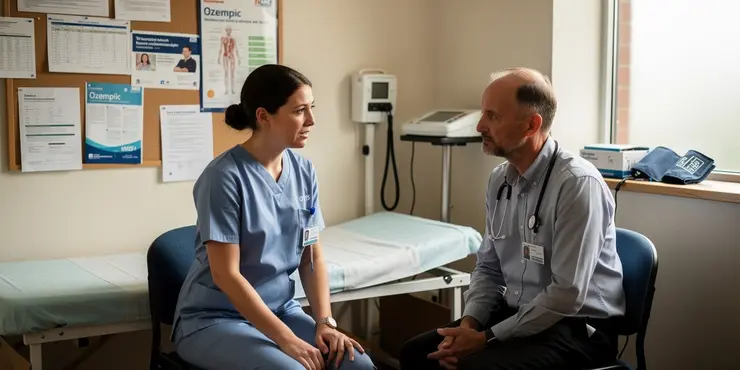
Can Ozempic cause serious side effects?
Relevance: 36%
-
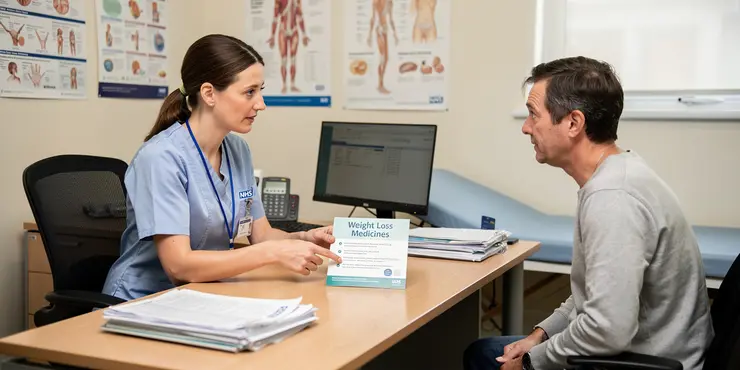
Are there any gastrointestinal side effects from weight loss medications?
Relevance: 36%
-

Are there any long-term effects of using Ozempic?
Relevance: 35%
-
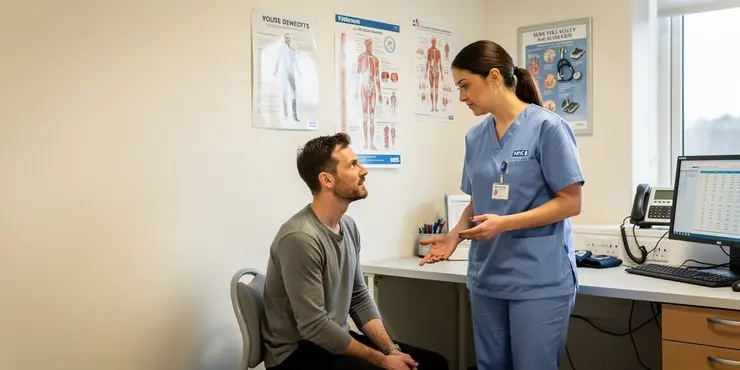
Can Ozempic be used for weight loss?
Relevance: 35%
-

How does Ozempic help with weight loss?
Relevance: 35%
-
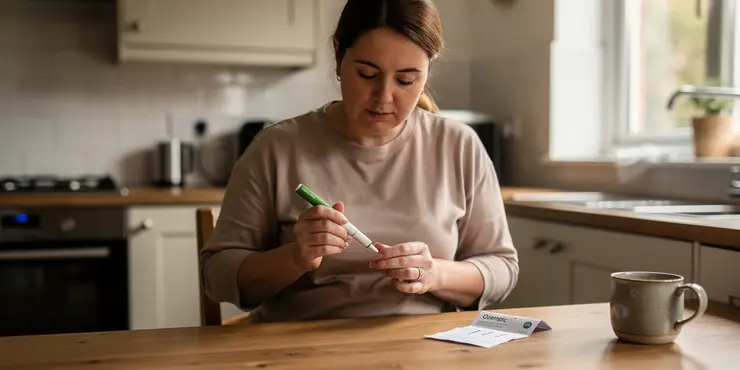
How is Ozempic administered?
Relevance: 34%
-

What is Ozempic?
Relevance: 34%
-

Is Ozempic a form of insulin?
Relevance: 34%
-

Can Ozempic affect vision?
Relevance: 34%
-

Are there any serious risks associated with Ozempic?
Relevance: 34%
-

Can I take Ozempic with other diabetes medications?
Relevance: 33%
-
What happens if I overdose on Ozempic?
Relevance: 33%
-
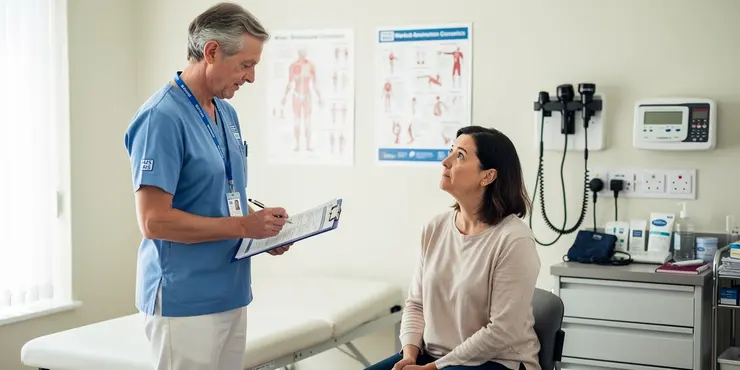
Is Ozempic safe for everyone to use?
Relevance: 33%
-

Does Ozempic cause allergic reactions?
Relevance: 33%
-

Is there a risk of thyroid tumors with Ozempic?
Relevance: 33%
-

How is Ozempic administered?
Relevance: 32%
-

Do I need a prescription for Ozempic?
Relevance: 32%
-

How often do you take Ozempic?
Relevance: 32%
-

How does Ozempic work?
Relevance: 32%
-
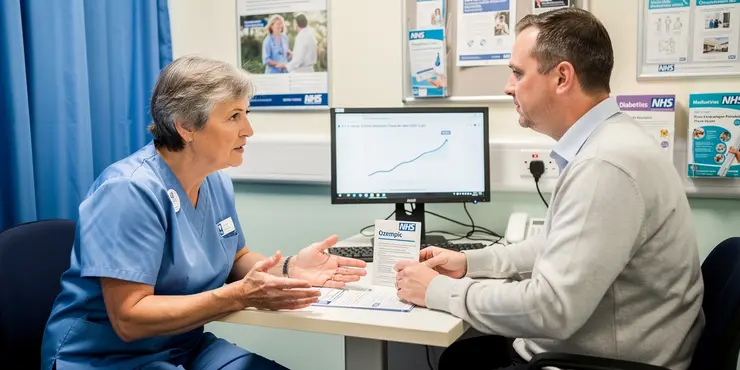
Does Ozempic have an impact on kidney function?
Relevance: 32%
-
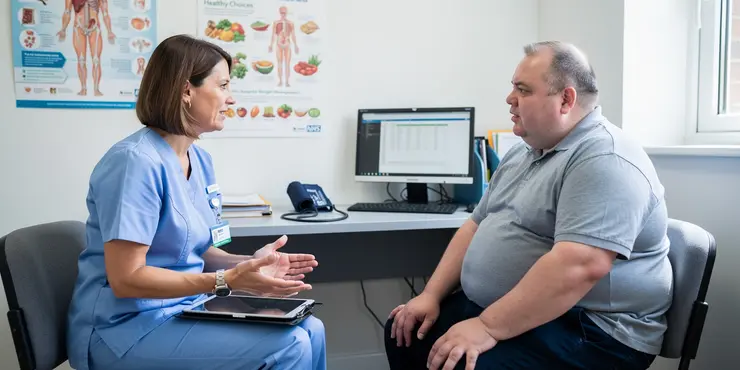
What is the typical dosage of Ozempic for weight loss?
Relevance: 31%
-

Are there any clinical trials supporting Ozempic for weight loss?
Relevance: 31%
-

Can Ozempic cause low blood sugar (hypoglycemia)?
Relevance: 31%
-
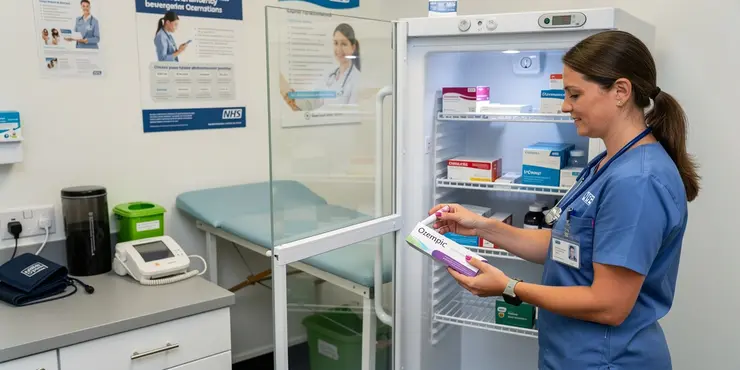
How should Ozempic be stored?
Relevance: 31%
-

What should I discuss with my doctor before starting Ozempic?
Relevance: 31%
-
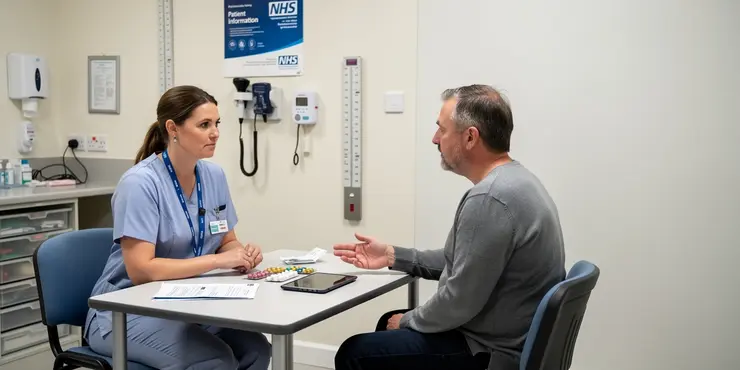
Does insurance cover Ozempic?
Relevance: 31%
-
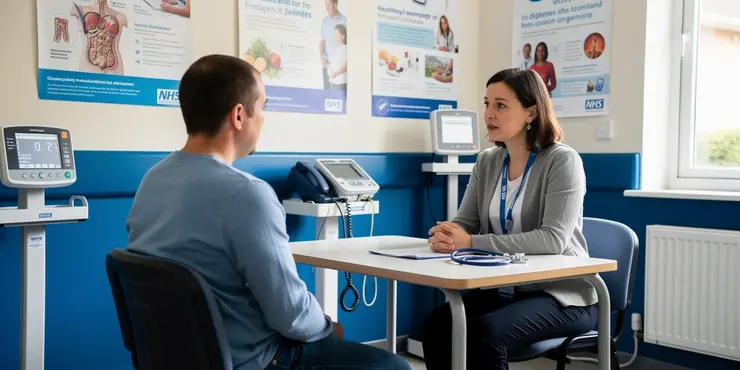
Is Ozempic suitable for type 1 diabetes?
Relevance: 31%
-

What populations should use caution when taking Ozempic?
Relevance: 30%
-

What should I discuss with my doctor before starting Ozempic?
Relevance: 30%
Understanding Ozempic
Ozempic is a prescription medication used primarily for managing type 2 diabetes. It functions by mimicking the hormone GLP-1 (glucagon-like peptide-1), which helps to regulate blood sugar levels. Additionally, Ozempic can aid in weight management for those who are overweight or obese. However, like all medications, it is associated with potential side effects, some of which can affect the gastrointestinal system.
Gastrointestinal Side Effects of Ozempic
Many patients taking Ozempic report experiencing gastrointestinal side effects. These can range from mild to severe and may include nausea, vomiting, diarrhoea, abdominal pain, and constipation. These symptoms are relatively common as the body's digestive system adjusts to the medication. For many, these side effects diminish over time. However, some individuals may experience persistent or severe gastrointestinal issues.
Severe Gastrointestinal Issues
While gastrointestinal side effects are expected with Ozempic, severe issues, although less common, may still occur. Severe nausea and vomiting can lead to dehydration and an imbalance of electrolytes. Intense abdominal pain may signal a more serious condition such as pancreatitis, a rare but dangerous inflammation of the pancreas that has been reported in some cases. Additionally, there is a potential risk of gallbladder problems, including gallstones and cholecystitis, which can manifest as severe stomach pain and require urgent medical attention.
Managing Gastrointestinal Symptoms
For those starting on Ozempic, healthcare providers often recommend beginning with a lower dose to allow the body to adjust gradually, which may help mitigate gastrointestinal symptoms. Eating smaller, more frequent meals and avoiding high-fat and highly processed foods can also alleviate symptoms. Staying adequately hydrated is critical, particularly if nausea or vomiting is present. Over-the-counter medications may provide temporary relief for symptoms like nausea and diarrhoea, but patients are advised to consult with their healthcare provider before taking additional drugs.
When to Seek Medical Advice
It is essential for individuals experiencing severe, persistent, or worsening gastrointestinal symptoms to seek medical advice promptly. Warning signs such as severe abdominal pain, signs of dehydration (such as dizziness, dry mouth, or infrequent urination), and persistent vomiting should not be ignored. Timely intervention can prevent complications and ensure that the medication is used safely and effectively. For UK patients, consulting with a GP or a specialist in diabetes management is advisable for personalised guidance and support.
Conclusion
Ozempic is a beneficial medication for many individuals managing type 2 diabetes and obesity; however, it can pose the risk of gastrointestinal side effects. Being aware of these potential issues and how to manage them effectively is crucial. Patients in the UK are encouraged to maintain open communication with their healthcare providers to optimise their treatment outcomes and address any concerns promptly.
Understanding Ozempic
Ozempic is a medicine given by doctors. It helps people with type 2 diabetes. Ozempic works by acting like a hormone in your body that helps control sugar levels in the blood. It can also help people who weigh too much lose weight. Like other medicines, Ozempic can sometimes cause side effects. Some side effects might upset your stomach.
Stomach Side Effects of Ozempic
Many people taking Ozempic might feel sick in their stomach. This can be mild or a bit more serious. You might feel like you need to vomit or have a tummy ache or diarrhoea. Some might feel constipated. This is because your stomach is getting used to the new medicine. For most people, these side effects get better in time. But for some, these stomach problems might not go away.
Serious Stomach Problems
Some serious stomach problems can happen with Ozempic, but they are less common. Bad nausea and vomiting can make you feel very thirsty and dizzy. A really bad stomach ache could mean something serious like pancreatitis. Pancreatitis is when the pancreas (an important organ) gets very sick. It is rare, but it can happen. Also, there is a risk of gallbladder problems which can cause bad stomach pain. You might need to see a doctor quickly if this happens.
How to Help Stomach Problems
If you start taking Ozempic, starting with a small dose can help your stomach get used to it. Eating smaller meals more often, and staying away from fatty or junk foods can also help. Drink plenty of water, especially if you feel like throwing up. There are some medicines you can buy that might help with feeling sick, but always talk to your doctor before taking anything new.
When to See a Doctor
If your stomach problems are really bad, do not ignore them. If you have signs like really bad tummy pain, if you feel dizzy, or if you haven't gone to the toilet in a while, see a doctor quickly. Sorting these problems out fast is important to stay safe and healthy. In the UK, it is good to talk to your GP or a diabetes specialist to get help that suits you best.
Conclusion
Ozempic is helpful for many with diabetes and weight problems but can upset your stomach. Knowing about these problems and how to handle them is important. People in the UK should keep in touch with their doctors to get the best help and to sort out any worries they have quickly.
Frequently Asked Questions
What is Ozempic?
Ozempic is a medication used to improve blood sugar control in adults with type 2 diabetes.
Can Ozempic cause gastrointestinal issues?
Yes, Ozempic can cause gastrointestinal issues such as nausea, vomiting, diarrhea, and abdominal pain.
What are the common gastrointestinal side effects of Ozempic?
The common gastrointestinal side effects include nausea, vomiting, diarrhea, and constipation.
Are gastrointestinal issues from Ozempic severe?
Gastrointestinal issues can vary in severity, but some people may experience severe symptoms.
What should I do if I experience severe gastrointestinal issues while taking Ozempic?
If you experience severe gastrointestinal issues, contact your healthcare provider immediately.
How common are gastrointestinal issues with Ozempic?
Gastrointestinal side effects are relatively common with Ozempic, especially when starting treatment.
Can adjusting the dose of Ozempic reduce gastrointestinal issues?
Adjusting the dose under medical guidance might help reduce gastrointestinal side effects.
Is there anything I can do to manage gastrointestinal side effects from Ozempic?
Eating smaller, more frequent meals and staying hydrated may help manage side effects.
Should I stop taking Ozempic if I have severe gastrointestinal issues?
Do not stop taking Ozempic without consulting your healthcare provider, even if you have severe symptoms.
How long do gastrointestinal side effects last with Ozempic?
Gastrointestinal side effects often improve over time as your body adjusts to the medication.
Is it safe to take Ozempic if I have a history of gastrointestinal issues?
Inform your doctor about your medical history, as they will evaluate if Ozempic is appropriate for you.
What are the symptoms of severe gastrointestinal issues while on Ozempic?
Symptoms may include persistent vomiting, severe abdominal pain, or significant dehydration.
Can Ozempic cause pancreatitis as a gastrointestinal issue?
Ozempic has been associated with an increased risk of pancreatitis, a severe inflammation of the pancreas.
What should I tell my doctor before starting Ozempic?
Inform them of any past gastrointestinal diseases, allergies, or medications you are taking.
Are there any groups more at risk for severe gastrointestinal issues with Ozempic?
Individuals with a history of gastrointestinal issues or pancreatitis may be at higher risk.
Can switching to a different medication help if gastrointestinal issues persist with Ozempic?
If issues persist, a healthcare provider may recommend switching medications or adjusting the treatment plan.
Are there any foods I should avoid to reduce gastrointestinal issues with Ozempic?
Avoiding high-fat or high-sugar foods might help reduce gastrointestinal discomfort.
Is nausea from Ozempic temporary?
Nausea is often temporary and may subside as your body adjusts to the medication.
Can I take over-the-counter medication to help with Ozempic's gastrointestinal side effects?
Consult your healthcare provider before taking any additional medication to manage side effects.
Where can I report severe side effects from Ozempic?
Severe side effects can be reported to your healthcare provider or the FDA MedWatch program.
What is Ozempic?
Ozempic is medicine. It helps people with diabetes feel better. It helps your body use sugar the right way.
Some people use pictures to understand things better. Try using pictures of medicine or sugar to help.
Ozempic is a medicine that helps grown-ups with type 2 diabetes keep their blood sugar levels in check.
Can Ozempic make your stomach feel upset?
Yes, Ozempic can make your tummy feel upset. It can cause feelings like feeling sick (nausea), throwing up (vomiting), having runny poo (diarrhea), and having a sore belly (abdominal pain).
What stomach problems can Ozempic cause?
Some tummy problems that can happen are feeling sick, throwing up, runny poo, and hard poo.
Can taking Ozempic make your tummy feel really bad?
Stomach and tummy problems can be different for everyone. Sometimes they can be very bad and need special care.
What should I do if I have bad tummy problems when taking Ozempic?
If you have really bad tummy troubles, call your doctor right away.
How often do tummy problems happen with Ozempic?
When people start taking Ozempic, it can sometimes upset their tummy. This is pretty common.
Can changing how much Ozempic you take help with tummy problems?
Taking less or more of your Ozempic medicine might help if it hurts your tummy. Always ask your doctor before changing your dose.
Ask your doctor if you can change the amount of medicine you take. This might stop your stomach from hurting.
How can I feel better if Ozempic makes my tummy feel bad?
Eating small meals more often can help you feel better. Drinking lots of water is good too. This can help with side effects.
Should I stop taking Ozempic if I have bad stomach problems?
Talk to your doctor before you stop taking Ozempic, even if you feel very sick.
How long do tummy problems last with Ozempic?
Ozempic can sometimes cause tummy problems. Tummy problems might include feeling sick, having a sore tummy, or needing the toilet a lot.
These problems usually go away after a few days or weeks. If they don't, or if they get worse, it's important to talk to a doctor.
You can try eating smaller meals and drinking lots of water to help your tummy feel better.
Stomach problems can get better as your body gets used to the medicine.
Can I take Ozempic if I have tummy problems?
Talk to your doctor before taking Ozempic if you have tummy troubles. They can help you decide if it's okay for you.
You can use picture boards or ask someone to help you understand your doctor's advice.
Tell your doctor all about your health. They need to know to decide if you should take Ozempic.
What happens to your stomach when you take Ozempic?
You might feel very sick and throw up a lot. Your tummy could hurt a lot too. You might also become very thirsty because you don't have enough water in your body.
If it's hard to understand or read this on your own, ask someone you trust for help. You can also try using tools that read text out loud to you.
Can Ozempic make your tummy sick and hurt your pancreas?
Pancreas is an organ that helps you digest food. Sometimes, medicines can affect it. If you are worried, talk to your doctor or nurse. They can help you understand.
If you find reading hard, you can ask someone to read it for you. You can also use tools that read out loud, like text-to-speech apps.
Ozempic can sometimes cause a sickness called pancreatitis. This is when the pancreas gets very sore and swollen.
What should I tell my doctor before I start taking Ozempic?
Before you start taking Ozempic, talk to your doctor. Tell your doctor about: - Any other medicines you take. - Any allergies you have. - If you are pregnant or want to have a baby. - If you have any health problems. It can help to write things down so you don't forget. You can also bring a friend or family member with you to the doctor for support.Tell the doctor if you have had any tummy problems before. Also, let them know if you are allergic to anything or if you take any medicine.
Who needs to be more careful with tummy problems when using Ozempic?
People who have had tummy problems or issues with the pancreas might have a bigger chance of getting sick.
Can changing to a new medicine help if tummy problems don't stop with Ozempic?
If you keep having problems, your doctor might suggest trying a different medicine or changing how you are being treated.
What Foods Should I Avoid to Feel Better on Ozempic?
Are you taking Ozempic? Here are some foods that might upset your tummy.
- Very spicy foods
- Greasy or oily foods
- Too much sugar
Try eating slowly and in smaller amounts. Drinking plenty of water can help too. If you're unsure, ask a doctor or nurse for advice.
Eating less fatty or sugary foods can help your tummy feel better.
Does Ozempic make your tummy feel sick for a short time?
Feeling sick might not last long. It can get better when your body gets used to the medicine.
Can I use medicine from the store to help with tummy problems from Ozempic?
If you have tummy aches or other problems after taking Ozempic, you might think about using medicine you can buy without a doctor.
Here are some steps to help:
- Talk to your doctor or a nurse before taking any new medicine.
- Read the label on the box to make sure it's safe for you.
- You can also try drinking more water and eating light meals to help your tummy feel better.
Talk to your doctor before taking any new medicine to help with side effects.
How do I tell someone about bad side effects from Ozempic?
If you have bad side effects, you can tell your doctor or the FDA MedWatch program.
Useful Links
This website offers general information and is not a substitute for professional advice.
Always seek guidance from qualified professionals.
If you have any medical concerns or need urgent help, contact a healthcare professional or emergency services immediately.
Some of this content was generated with AI assistance. We’ve done our best to keep it accurate, helpful, and human-friendly.
- Ergsy carfully checks the information in the videos we provide here.
- Videos shown by Youtube after a video has completed, have NOT been reviewed by ERGSY.
- To view, click the arrow in centre of video.
- Most of the videos you find here will have subtitles and/or closed captions available.
- You may need to turn these on, and choose your preferred language.
- Go to the video you'd like to watch.
- If closed captions (CC) are available, settings will be visible on the bottom right of the video player.
- To turn on Captions, click settings .
- To turn off Captions, click settings again.
More Items From Ergsy search
-

Can Ozempic cause severe gastrointestinal issues?
Relevance: 100%
-

Can Ozempic lead to dehydration?
Relevance: 44%
-

Who should not take Ozempic?
Relevance: 43%
-

What are the common side effects of Ozempic?
Relevance: 43%
-

What problems is Ozempic known to cause?
Relevance: 42%
-

What are the side effects of Ozempic?
Relevance: 41%
-

Is nausea a frequent side effect of Ozempic?
Relevance: 40%
-

Can Ozempic be taken with food?
Relevance: 39%
-

What is Ozempic?
Relevance: 37%
-

What are common side effects of Ozempic?
Relevance: 37%
-

Can Ozempic cause gallbladder problems?
Relevance: 36%
-

Can Ozempic cause serious side effects?
Relevance: 36%
-

Are there any gastrointestinal side effects from weight loss medications?
Relevance: 36%
-

Are there any long-term effects of using Ozempic?
Relevance: 35%
-

Can Ozempic be used for weight loss?
Relevance: 35%
-

How does Ozempic help with weight loss?
Relevance: 35%
-

How is Ozempic administered?
Relevance: 34%
-

What is Ozempic?
Relevance: 34%
-

Is Ozempic a form of insulin?
Relevance: 34%
-

Can Ozempic affect vision?
Relevance: 34%
-

Are there any serious risks associated with Ozempic?
Relevance: 34%
-

Can I take Ozempic with other diabetes medications?
Relevance: 33%
-
What happens if I overdose on Ozempic?
Relevance: 33%
-

Is Ozempic safe for everyone to use?
Relevance: 33%
-

Does Ozempic cause allergic reactions?
Relevance: 33%
-

Is there a risk of thyroid tumors with Ozempic?
Relevance: 33%
-

How is Ozempic administered?
Relevance: 32%
-

Do I need a prescription for Ozempic?
Relevance: 32%
-

How often do you take Ozempic?
Relevance: 32%
-

How does Ozempic work?
Relevance: 32%
-

Does Ozempic have an impact on kidney function?
Relevance: 32%
-

What is the typical dosage of Ozempic for weight loss?
Relevance: 31%
-

Are there any clinical trials supporting Ozempic for weight loss?
Relevance: 31%
-

Can Ozempic cause low blood sugar (hypoglycemia)?
Relevance: 31%
-

How should Ozempic be stored?
Relevance: 31%
-

What should I discuss with my doctor before starting Ozempic?
Relevance: 31%
-

Does insurance cover Ozempic?
Relevance: 31%
-

Is Ozempic suitable for type 1 diabetes?
Relevance: 31%
-

What populations should use caution when taking Ozempic?
Relevance: 30%
-

What should I discuss with my doctor before starting Ozempic?
Relevance: 30%


